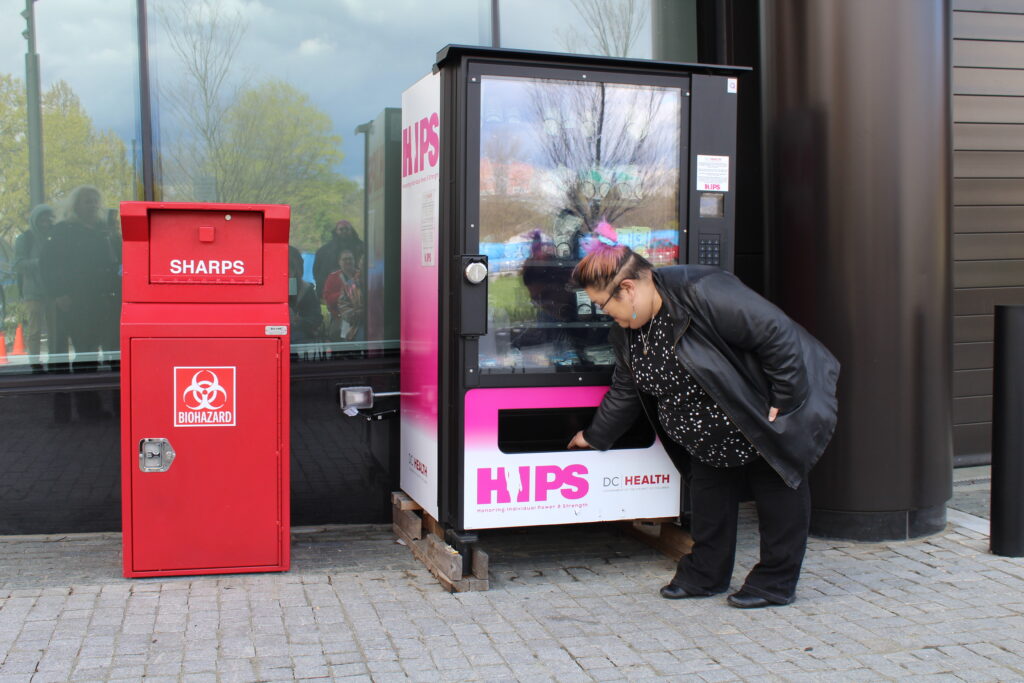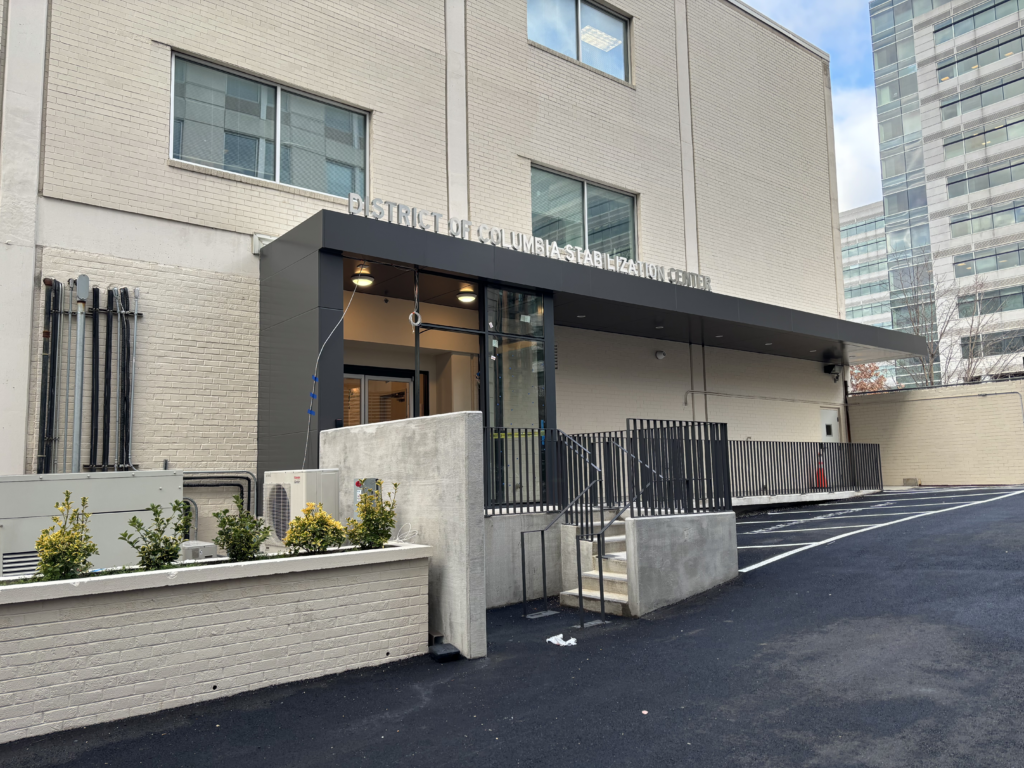Local harm reduction nonprofit HIPS celebrated the official launch of its harm reduction vending machine project in early April. The pilot project will increase access to fentanyl test strips and other harm reduction supplies across the city thanks to a $300,000 grant from D.C. Health split among local organizations.
The machines offer free 24-hour access to critical harm-reduction items including clean syringes, condoms, fentanyl test strips, and the life-saving drug naloxone, also known by its brand name Narcan, which can reverse opioid overdoses.
These efforts to increase access to overdose treatment and prevention resources come in the wake of a record year for opioid deaths in the District, according to a March report from D.C.’s Office of the Chief Medical Examiner, which found 96% of opioid deaths in 2022 and 2023 involved fentanyl. HIPS installed three vending machines in Wards 5 and 8, both of which have been hard hit by overdose deaths.
HIPS celebrated the official project launch on April 5 at the Whitman-Walker Max Robinson Center in Congress Heights, where the organization installed a vending machine last summer.
Providing harm reduction services helps build trust between patients and local health care systems, said Jona Tanguay, leader of medical substance use disorder programs at Whitman- Walker Health. It can encourage patients to plug in with services and practice safer use even if they aren’t interested in fully stopping drug use, Tanguay added.
“I like to think about substance use disorder care as a spectrum,” Tanguay said. “There’s levels of care, and people who are in active use may not be ready to go to the health centers to use certain services.”
HIPS installed three machines around the city over the last year and just received funding for two more, although they are still working out the details for future locations, HIPS Outreach and Community Engagement Manager Alexandra Bradley said.
How to use the vending machines
Community members can access free resources in machines already placed at:
- Ward 5: Bread for the City near the Howard-Shaw Metro Station (1525 7th St., NW)
- Ward 8: The Whitman-Walker Max Robinson Center near the Congress Heights Metro Station (1201 Sycamore Dr., SE)
- Ward 8: The Michelle Obama Southeast Center of Bread for the City in Anacostia (1640 Marion Barry Ave., SE)
To use the vending machines, you can call the number listed on the machine — (202) 779-0486 — to register. The process requires a date of birth, but no other personal information is necessary to use them. After registration, you’ll be given a reusable four-digit code and can access anything you need from the vending machines.
If you don’t have a phone, you can register with the HIPS outreach van or at the drop-in center located in Ward 5 at 906 H St., NE.
Because naloxone and fentanyl test strips are considered emergency supplies, you can use the code 9999# to access them without signing up for the program.
The vending machines also have other resources, including hormone injection supplies, face masks, syringes with a variety of gauges, injection kits, granola bars, water bottles and sharps containers that hold between 10 to 20 used syringes.
You can also access snorting kits that help prevent the spread of Hepatitis C, which is easily spread with a small amount of blood by sharing snorting straws, Tanguay said.
Closing gaps in harm reduction research
The vending machines are located in high-need areas to fill gaps in access to services, but they’ll also help inform the current body of knowledge on harm reduction.
HIPS has teamed up with two researchers from the University of Maryland, Andrea López and Greg Midgette, who are studying how the community uses and responds to the machines. They will also look at how implementing machines impacts overdose clusters to understand their efficacy.
From January to March of this year, the most used items included Fentanyl test strips, granola bars, water bottles, safer injection kits, and naloxone, López said.
One benefit of the vending machines is that they seem to be encouraging people to safely dispose of needles, López said. In the first three months of the year, HIPS collected 1,605 more syringes from sharps containers next to the machines than the machines distributed themselves.
“That’s a positive thing to know that when you put it in a disposal box like that, people will use it,” López said.
So far, HIPS has distributed over 11,000 individual items to 102 unique clients through the vending machines.
Aside from providing data to inform local harm reduction efforts, López said their research will fill a gap in the current body of knowledge on harm reduction vending machines.
“We know that overdose death primarily impacts Black men in D.C.,” López said. “There is very little data essentially on populations of color in relation to vending machines, so this is also a gap just more broadly, that we know we’re going to be able to speak upon.”
Having the vending machine located on the Max-Robinson Center medical campus allows Tanguay to provide more comprehensive care to their patients. Before the vending machine was installed, they had to refer patients who needed clean needles and other resources to seek out services from the HIPS drop-in center or outreach van.
“We can give away Narcan, we can give away sharps containers, but we didn’t really have a resource for people for needles and other sort of needs that they were having,” Tanguay said.
Now, Tanguay can tell them to swing by the vending machine downstairs on their way out.
“I’m really excited about the future of this machine and all the potential it has,” Tanguay said. “And potentially even offering even more services in the future to make sure that we’re meeting the community’s needs.”







